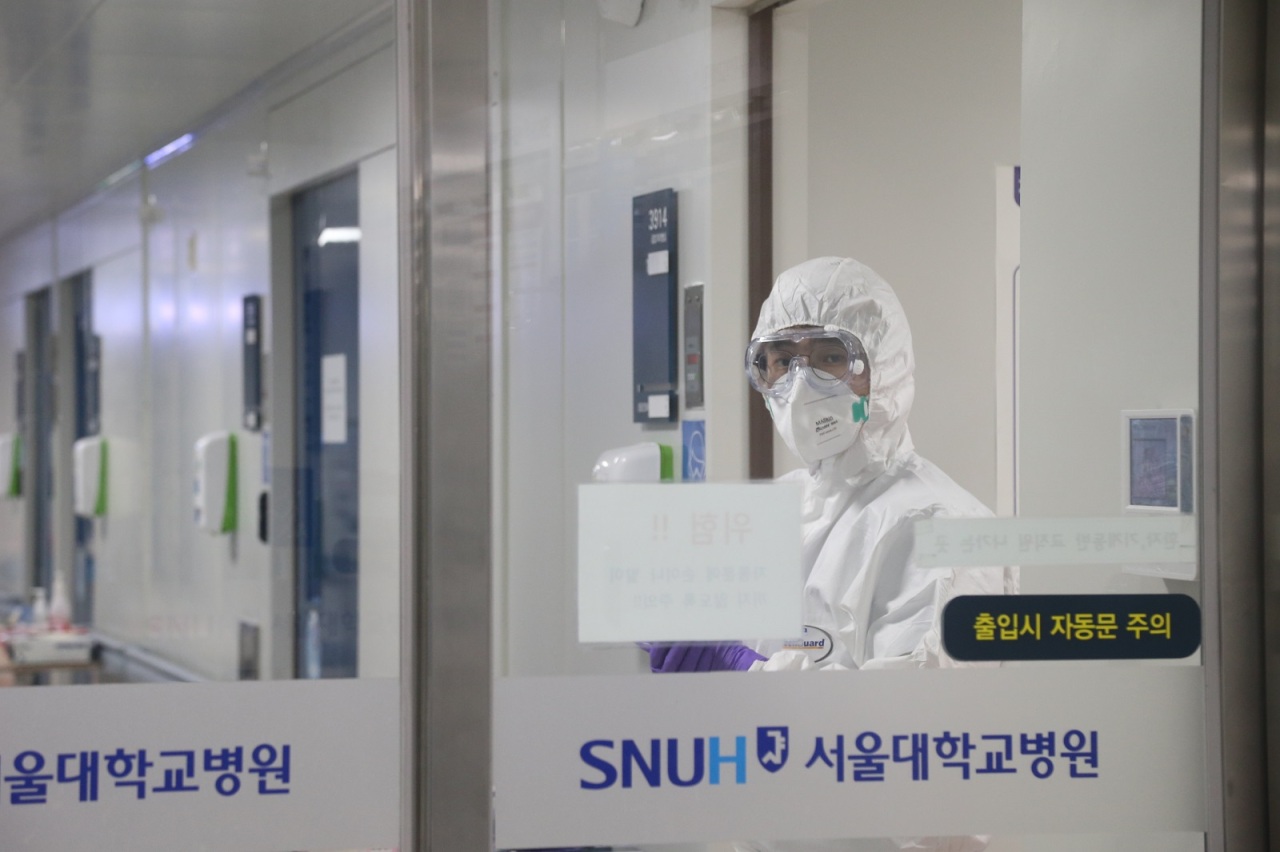 |
Entrance to the negative pressure chamber at Seoul National University Hospital in Seoul. (Yonhap) |
With a surge in COVID-19 cases here this week, concern is rising over the capacity of the country’s health care system to cope with the infectious disease.
In the southern city of Daegu and nearby North Gyeongsang Province, where the newest cases are concentrated, there are fewer than 90 available beds in quarantine facilities, according to local authorities.
Patients infected with the new coronavirus that causes COVID-19 require a negative pressure isolation chamber, designed to prevent air from circulating out of the room and through the rest of the hospital.
At South Korea’s 29 state-designated hospitals across the country for COVID-19 treatment, there are 161 such chambers and 198 sickbeds.
With the number of coronavirus cases having doubled in just a day, to 104 as of Thursday afternoon, Korea has begun using negative pressure rooms in non-designated hospitals as well -- especially in Daegu, where 39 new cases were confirmed in the last four days, representing the largest cluster of infections here.
There are 1,027 beds for COVID-19 patients in Korea: 383 in Seoul, 143 in Gyeonggi Province, 90 in Busan, 71 in South Gyeongsang Province, 54 each in Incheon and Daegu, 34 in North Gyeongsang Province and around 20 elsewhere.
The Korean Hospital Association has warned of a potential shortage of quarantine beds.
If the country continues with its current strategy of treating all COVID-19 patients, even mild cases, in special chambers, it could face a shortage of beds if the virus spreads further.
The group has urged health authorities to prepare for a scenario in which patients outnumber quarantine beds, saying that one option may be to categorize hospitals according to the severity of the patients’ condition.
With health authorities declaring that the virus has begun spreading locally, the Korea Centers for Disease Control and Prevention said it was working with regional governments to secure additional hospital beds.
By Ahn Sung-mi (
sahn@heraldcorp.com)







![[Today’s K-pop] Blackpink’s Jennie, Lisa invited to Coachella as solo acts](http://res.heraldm.com/phpwas/restmb_idxmake.php?idx=644&simg=/content/image/2024/11/21/20241121050099_0.jpg)
